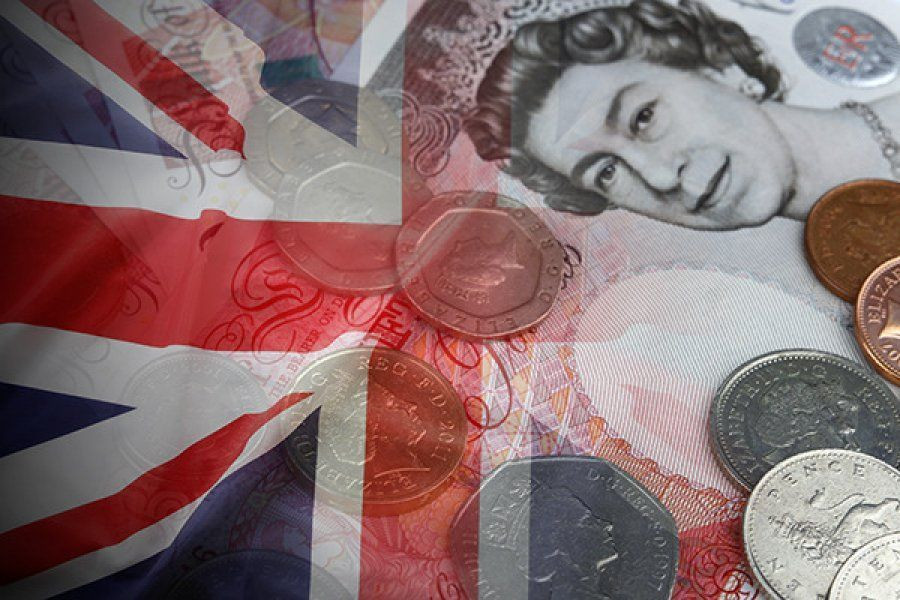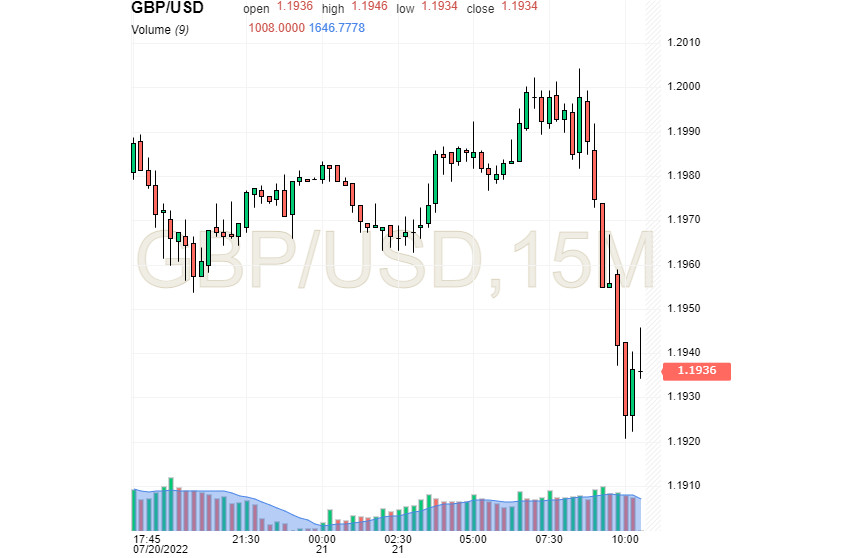
The British currency, having experienced some confusion after impressive inflation data, regained confidence. In the near future, the pound will make up for lost time, analysts believe, drawing attention to the gradual rise of the British currency.
The pound traded confidently on Wednesday, July 20, despite the June reports of skyrocketing inflation in the UK. The updated data reinforced market expectations for a sharp 50bp rate hike by the Bank of England in August. Recall that in the first month of summer, inflation in the UK amounted to 9.4% in annual terms, exceeding the May figure of 9.1%. This is well above the 2% target set by the central bank. At the same time, the core consumer price index excluding energy rose by 5.8% year on year. A significant contribution to a new round of inflation was made by the rise in food prices, experts emphasize.
According to the current macroeconomic reports, in the near future the UK monetary authorities will consider raising the rate by 50 bp, abandoning the measured step of 25 bp. Previously, representatives of the BoE stated the need to tighten the monetary policy in order to curb inflation.
The prospect of the central bank raising the key rate (by 50 bp) is supporting the pound. However, experts fear that further tightening of monetary policy by the BoE, which has raised rates five times this year, will trigger a recession in the British economy. According to preliminary forecasts, in the event of another round of inflation, the growth rate of consumer prices in the country will exceed 10% by the end of summer. At the same time, the BoE cannot refuse to raise rates, since this is the only effective tool to combat rising prices.
Experts consider the improvement of market sentiment to be another factor supporting the British currency. Against this background, market participants temporarily abandoned protective assets and turned to risky instruments, primarily GBP. The tension regarding the near-term dynamics of the pound is created by current political events. At the same time, political uncertainty in the UK associated with the upcoming cabinet elections has a negative impact on the pound. GBP was trading at 1.1998 on Wednesday, July 20. Currently, the pound retains the potential for decline, while not abandoning attempts to grow. The GBP/USD pair was cruising near 1.1936 on Thursday, July 21, trying to catch up.

At the moment, the main candidate for the post of the future prime minister of Great Britain is Rishi Sunak, the former head of the Ministry of Finance of the country. 101 MPs voted for him in the first round of elections. At the same time, the second candidate, Liz Truss, the British Foreign Secretary, scored only 64 votes. The election of the new prime minister of the United Kingdom is scheduled for September 5, 2022.
The pound's attempts to rise face difficulties caused by the economic situation in the UK. According to analysts, the tightening of the monetary policy of the central bank is able to support the GBP, but at the same time creates risks for the stock market. Recall that the pound is sensitive to fluctuations in risk appetite, so its further growth is questionable. Currently, the pound is teetering on the verge of a downward trend, risking to continue the recent decline, but at the same time demonstrating readiness to fight.





















